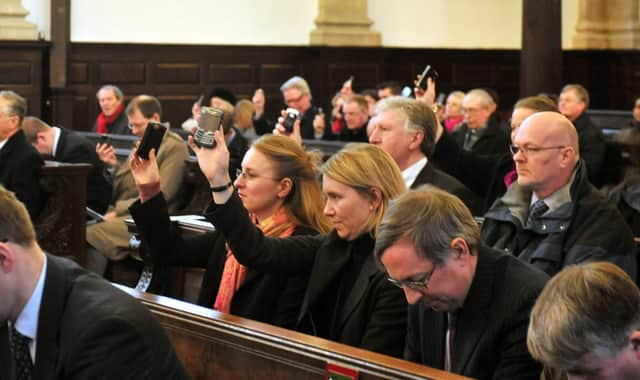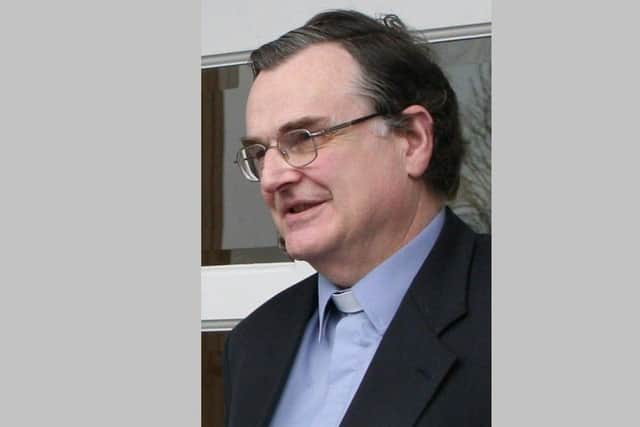Ian Ellis: Digital revolution has brought great opportunities, not least for churches, but care is needed this social media age


There had been car phones before that, but they were fitted to vehicles. The user couldn't carry them around when out for a walk or going shopping, on public transport or wherever.
Yet even the modern mobile has developed and now typically allows the user to access the internet.
Advertisement
Hide AdAdvertisement
Hide AdThis function has in turn given rise to social media – text, image and video messaging.


People nowadays can communicate with each other in real time as easily from opposite sides of the globe as from nearby.
It used to be that on return from a holiday, friends and family would be eager to hear all about it. Now, however, they more than likely have been updated every step of the way.
There are plenty of ethical considerations in this brave new world, such as the ease of spreading falsehoods, privacy, national security, children having access to unsuitable material, and the separation of private and public communications.
The list goes on.
Advertisement
Hide AdAdvertisement
Hide AdSeveral recent social media related controversies have been particularly high profile.
One was the passing on by the journalist, Isabel Oakeshott, to the Daily Telegraph of former health secretary Matt Hancock's WhatsApp multitude of messages, which she had been given in confidence by Mr Hancock when she was assisting him in writing a book about the Covid-19 pandemic.
A second was a tweet by BBC sports commentator Gary Lineker criticising the government's asylum policy. It led to his suspension by the BBC on the grounds that his action breached the broadcaster's editorial and impartiality guidelines.
Then again, Reuters has reported that the speed at which depositors recently fled the Silicon Valley Bank, withdrawing $42 billion in just 24 hours, has highlighted the new risk of a social media-driven bank run exacerbated by the ease of electronic withdrawals.
Advertisement
Hide AdAdvertisement
Hide AdThis is the world in which we now find ourselves but, despite such issues, there is no doubt that the communications revolution of recent decades has brought great opportunities, not least for the churches.
At the beginning of the twentieth century, the churches were aware that the world was opening up to trade, travel and communications in new ways, and they were eager to step in and take full advantage of this for commending the Christian message.
Even in the New Testament it can be seen how trade routes were important in the way the early church grew, with congregations being founded in major trading centres around the Mediterranean.
Indeed, UNESCO's Silk Routes Programme points out that the routes were “of great importance in the passage of not only goods and crafts but also of religions and ideologies throughout Central Asia, the Near East and Europe”.
Advertisement
Hide AdAdvertisement
Hide AdToday, the world has opened up in a radically new, interconnected way as a result of internet and computing technology.
The social media phenomenon has a global reach but when it comes to church life it is very often locally focused. Yet the local can easily become the global and for that reason it is important for users to be aware of the precise nature of the source.
In an article for BBC Futures, Chris Stokel-Walker, a journalist specializing in technology and digital culture, has recalled how fifteen years ago a clergyman was asked to leave Durham Cathedral because he had been looking at his mobile phone screen during a service. He had in fact been using it to read the Bible.
The article goes on to point out that now the situation has changed in the Cathedral, and states: “This more relaxed approach to phones is not the only tech-related update the church has undergone in the past few years. The rise of apps and social media is changing the way many of the world’s two billion Christians worship – and even what it means to be religious.”
Advertisement
Hide AdAdvertisement
Hide AdThe use of mobile devices to read Scripture is now very frequent. One cannot really object to it, although I for one prefer to study and read from a page as opposed to a screen. It is a matter of personal choice, and perhaps the result of a long-practised way of doing things.
Certainly, an online version of the Bible is very useful for searching the text. I do that often and no longer turn to a printed concordance.
A paradox of the internet is that while it is global it is also encouraging individualism. In religious terms that means there is all the potential to lose a corporate sense of being the church, although online services have mitigated that to some extent.
Of course, people arriving in a new area have long been 'shopping around' to find a congregation that suits their outlook, and that is understandable.
Advertisement
Hide AdAdvertisement
Hide AdHowever, individualism, taken to extremes, does run the risk of people closing themselves off from challenges to their ways of thinking or of living their faith.
Our new social media world is certainly to be embraced. However, just as people need to take care when out and about in public, so too care is needed when stepping into the electronic space.
Canon Ian Ellis is a former editor of The Church of Ireland Gazette.